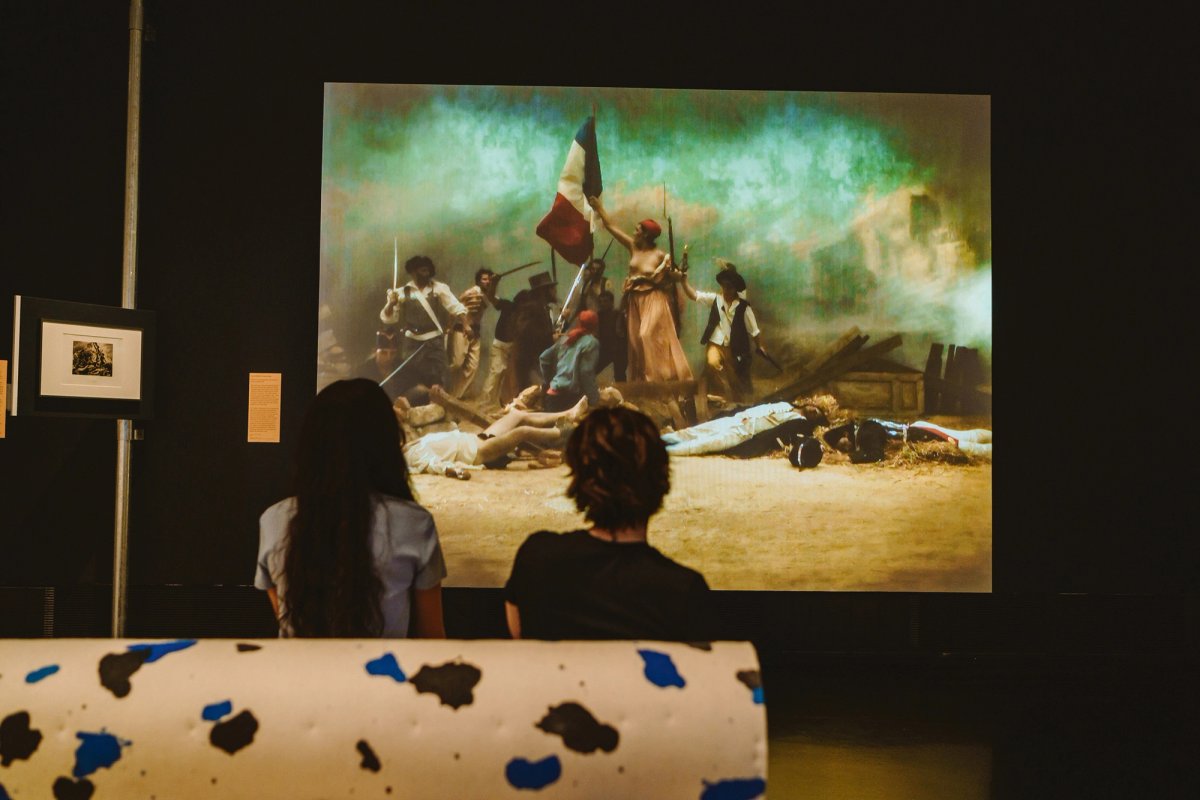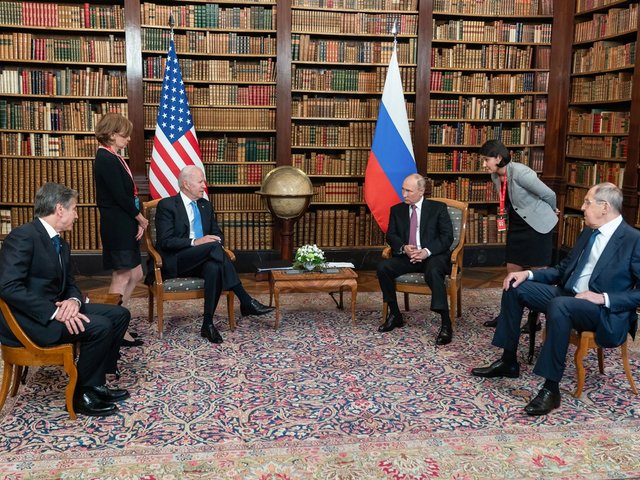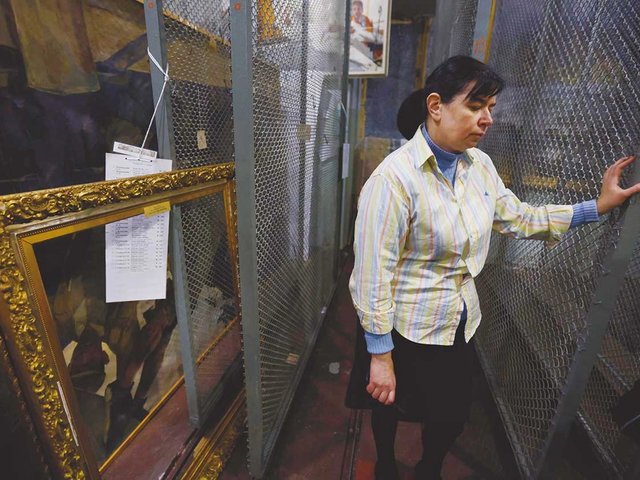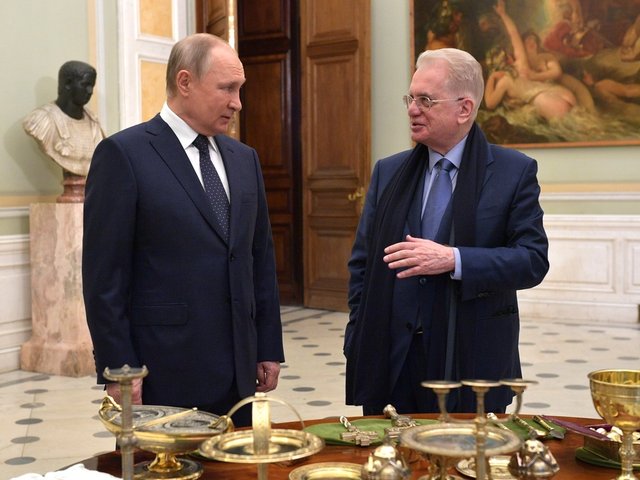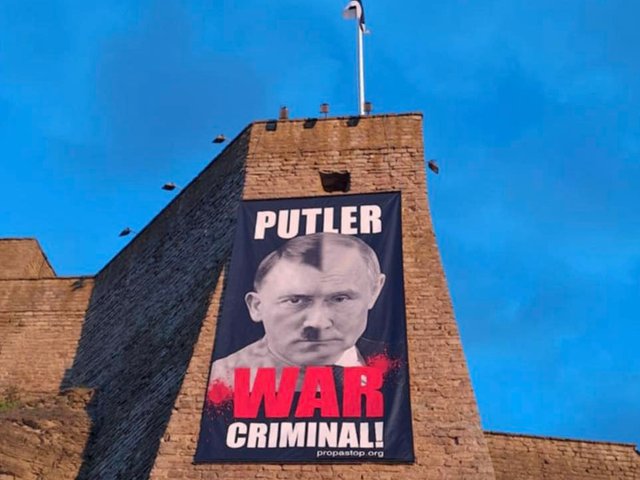Europe’s museums are at risk of losing their independence under growing political pressure, the Network of European Museum Organisations (Nemo) warns. The organisation is seeking to raise awareness and open debate about an “alarming trend” that has until now been “boiling under the surface”, says Julia Pagel, Nemo’s secretary general.
This summer, Nemo published an in-depth analysis of a survey of 153 museum organisations across 31 countries that it conducted last year. Six out of ten museums, and three-quarters of national umbrella organisations, answered yes to the question: “Do you feel that the museums’ vision or (parts of its) programme in your country are subject to political pressure?”
Armed with concrete data from the survey, Nemo has held discussions with the president of the European Parliament, Roberta Metsola, the European Commission and the Council of Europe, alongside professional bodies such as Unesco and the International Council of Museums. “It’s important to be more detailed about what political influence means, because we talk so little about it publicly,” Pagel says.
Pressure fronts
Museum organisations across the continent (plus a few outliers from outside Europe that were excluded from the final results) reported various types of interference. Three key areas were outlined by the questionnaire: budgets, programming and public statements on political issues. Governance also emerged as a major concern, as state or local authorities often exert influence over museums by appointing directors and board members aligned with the prevailing ideological agenda.
The results suggest that political influence is “a problem for everyone”, says Paulina Florjanowicz, an executive board member at Nemo and the director of the Polish National Institute for Museums, who initiated the survey and compiled the recently published analysis. The survey showed “no pattern” in geographical location or political regime, she says; similar concerns were expressed by museums in countries led by right-wing, centrist and left-wing governments. (The raw data were aggregated and not disclosed to preserve confidentiality.)
Attendees at Nemo’s annual conference in November 2024 expressed a strong desire for more “safe spaces” in which to discuss politically sensitive situations with sector colleagues, Pagel says. “People are afraid of losing their job. They are afraid of harming their institution when they speak up.” Museums also requested practical advice on how to navigate controversies and protect their independence.
Self-censorship
Just over half of the survey respondents said museums in their country were able to “openly express their views without being judged for them”. Yet the survey also showed that almost twice as many museums would rather avoid “topics that are heating up public debate” (41%) than actively take a stand (22%), while another 37.5% fell in the middle. Florjanowicz interprets this caution as a strategic position of “neutrality” often adopted by museums due to “fears of political backlash”.
“Museums frequently exercise self-censorship to circumvent potential repercussions regarding sensitive topics,” she writes, citing migration, colonialism, war and social justice issues as common flashpoints. European museums rely heavily on public funding and their directors are often appointed by local or state government, creating a “dependency on political approval” and a corresponding “brake on criticism”. As a result, while the majority of museums surveyed are “well aware of the rise of polarisation in their societies”, they view it as an institutional challenge rather than “an opportunity to bridge social divides”.
This “strategic silence” could be a missed opportunity for museums seeking to serve communities through volatile times. “With an ongoing war in Ukraine and deepening social polarisation, the idea that museums should remain neutral is really something to be re-evaluated,” Pagel says. Surveys in Germany, Sweden, the UK and the US have shown that museums enjoy consistently high levels of public trust. They can build on this by delivering “evidence-based information” and “ensuring that all perspectives are represented fairly”, Pagel says, although she admits: “Of course, that is very difficult.”

Despite facing local political opposition, on 9 May, Narva Museum—located close to Estonia’s border with Russia—displayed a poster likening Russian President Vladimir Putin to Adolf Hitler
Photo: Stringer/AFP via Getty Images
Maria Smorževskihh-Smirnova has first-hand experience of the challenges that come with taking a stand. The director of the Narva Museum, located at Estonia’s eastern border with Russia, she was charged with “rehabilitating Nazism” and spreading “knowingly false information” about the Russian military. For three consecutive years the museum has hung a banner showing Russian president Vladimir Putin with the words “War Criminal” on its exterior on 9 May, coinciding with Russia’s Victory Day. This is a day when the Kremlin stages grand military parades to commemorate the Soviet Union’s defeat of Nazi Germany—and, in recent years, to glorify the war in Ukraine. In 2025, the Narva Museum’s banner had a composite image of Putin and Adolf Hitler.
The museum has also staged exhibitions on the city’s destruction by Soviet forces in 1944, a history that was suppressed during the Soviet occupation of Estonia. On 25 September, a Moscow city court sentenced Smorževskihh-Smirnova to ten years in a penal colony in absentia.
Countering narratives
Despite facing “a wave of negativity” from local politicians, two of whom sat on the museum board, Smorževskihh-Smirnova is determined to counter Russian propaganda narratives about Ukraine that weaponise Second World War history, such as false claims that Ukraine is a neo-Nazi aggressor. “We are already on the battlefield of hybrid warfare, especially in Narva,” she says, where the largely Russian-speaking population is vulnerable to disinformation. “I believe that museums can resist this threat. We should be brave, with the understanding that our culture and our values are on the frontline.”
Smorževskihh-Smirnova’s response to the sentence she received in absentia was reported by Estonian Public Broadcasting (ERR). “I have not committed a single illegal act in my life. How my actions are interpreted by the totalitarian regime of a neighbouring country is their internal matter,” she said. “I see what has happened as yet another, rather banal and long-since unoriginal attempt to intimidate me personally, and also others—those who dare to call things by their proper names,” she said. “My response is simple and unequivocal: it will not succeed. The ‘Russian warship’ may continue on its course, one that has already been clearly defined by the defenders of Ukraine.”
The Jewish Museum Frankfurt has also been caught up in the fallout from a live geopolitical conflict. It responded to the 7 October 2023 attacks on Israel with a range of memorial initiatives, recognising “the impact this massacre had on Jews worldwide”, says the director, Mirjam Wenzel. But the museum—and its diasporic community—is not aligned with the Israeli government’s “highly destructive” war in Gaza, she stresses. Nevertheless, staff have experienced “rising antisemitism” from the public since the onset of the Israel-Hamas war. “Our task is to build bridges,” Wenzel says, calling attention to the “resilience” required of museum staff in coping with anger and fear from visitors.
Engaging with politicians
Museums today can and want to “take on a societal role and contribute to democracy”, but doing so means engaging with politicians more, not less, argues Olga Van Oost, the director of the Flemish Institute for Cultural Heritage (Faro). An organisation that provides training and advice to Belgian arts and heritage professionals, Faro recently worked with museum directors to develop a new “ethical charter”, which Van Oost says was prompted by sector debates over how—and whether—to address the crisis in Gaza. The charter aims to inspire further discussion about how museums establish “rules of good governance” with stakeholders, she says.
As Nemo’s survey underlines, museums cannot insulate themselves from political forces. Their public status makes them accountable to government and society alike, Van Oost notes, so complete independence is “an illusion”. She advocates instead for “interdependence”, in which museums negotiate equitable alliances with politicians and wider civic partners.
In an era of geopolitical instability and polarised discourse, the nuanced voices of museums are needed now more than ever, Florjanowicz says. “There is a lot of fake news being promoted, a lot of false agendas,” she warns. “Heritage institutions are the safekeepers of the foundations of our civilisation. That is why it is so important that they are strong, credible and responsible, because they are very often a target of the information wars.”


